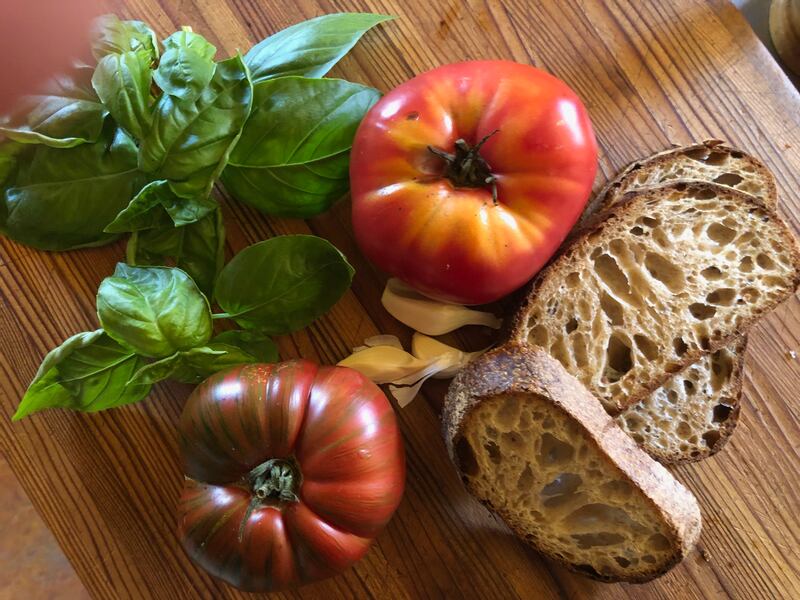Jim Dixon wrote about food for WW for more than 20 years, but these days most of his time is spent at his olive oil-focused specialty food business Wellspent Market. Jim’s always loved to eat, and he encourages his customers to cook by sending them recipes every week through his newsletter. We’re happy to have him back creating some special dishes just for WW readers.
While Italian cookbooks written for Americans invariably call pappa al pomodoro a “thick soup,” the literal translation to “tomato mush” is more accurate, even if it’s not appealing. But don’t let that put you off. For a simple dish with only a handful of ingredients, it’s incredibly tasty.
Part of the long Tuscan tradition of repurposing stale bread, pappa combines a few dried-out slices with ripe, juicy tomatoes. Add a little garlic, basil and good olive oil, simmer briefly, and you’ve got summer in a bowl. And though most recipes call for removing the crust, no thrifty Italian would waste even a crumb of bread, and it adds some textural contrast that I like.

Pappa al Pomodoro
2-3 ripe tomatoes (about 1 1/2 lbs)
2-3 slices of bread cut into bite-sized pieces
2-3 cloves of garlic
10-12 basil leaves
1/4 cup extra-virgin olive oil
1/2 teaspoon kosher-style salt
Cut the tomatoes into pieces that will fit in your blender, then blitz them with the garlic, basil, olive oil and salt. Combine the puree with the bread in a saucepan and bring to a gentle simmer. Cook for about 15 minutes, stirring frequently as it thickens to prevent scorching. While you can eat pappa al pomodoro hot, I think it’s best at room temperature. Drizzle each bowl with a little olive oil and garnish with shredded fresh basil.

